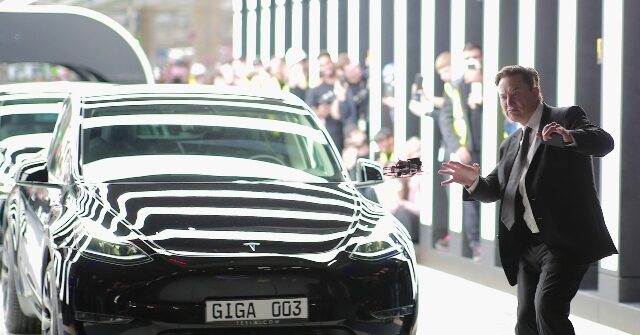Tesla is taking a gradual approach to introducing its autonomous driving technology in the San Francisco Bay Area by initially offering a ride service with humans at the wheel while it awaits regulatory approval for its robotaxis.
Road and Track reports that Elon Musk’s Tesla has begun operating a limited chauffeur-style taxi service in the San Francisco Bay Area as part of its broader plan to introduce autonomous “robotaxis” in the region. The move comes as the company seeks to expand its self-driving technology beyond its current operations in Austin, Texas. The Austin robotaxi service is extremely limited in scope and has gotten off to a rocky start.
During the company’s recent earnings call, Musk revealed that Tesla is in the process of obtaining the necessary regulatory permissions to launch its robotaxis in additional markets, with San Francisco being one of the targeted locations. However, while Tesla awaits approval from the California Public Utilities Commission (CPUC), it has decided to send out vehicles with human drivers to navigate the city’s streets.
According to a CPUC spokesperson cited by Reuters, Tesla is not currently permitted to test or transport the public in autonomous vehicles, even if a human safety driver is present. The spokesperson clarified that Tesla can only provide transportation services using non-autonomous vehicles operated by human drivers. As a result, Tesla’s current permit allows it to operate traditional vehicles for charter services, effectively functioning as a taxi service. In Austin, Tesla robotaxis include a Tesla employee sitting in the passenger seat as well as a remote operations center monitoring the car’s driving.
To comply with these regulations, Tesla’s chauffeur drivers will likely utilize the company’s Full Self-Driving (FSD) software while transporting passengers. Although the software is legal for owners to use, the law mandates that a human driver must continuously monitor the system and be prepared to intervene at any moment. No special permit is required for this arrangement, although the CPUC spokesperson did not provide a clear response when asked about Tesla’s ability to activate FSD with passengers in the vehicle.
At the outset, Tesla’s charter service will be highly restricted, with the company informing the CPUC that it would initially offer rides to “friends and family of employees” and “select members of the public.” Given the early stages of the project and the need to acquire additional permits, details regarding future costs and timelines remain uncertain. California’s regulations stipulate that companies must first operate in a pilot phase without charging customers for their services.
Read more at Road and Track here.
Lucas Nolan is a reporter for Breitbart News covering issues of free speech and online censorship.
Read the full article here
